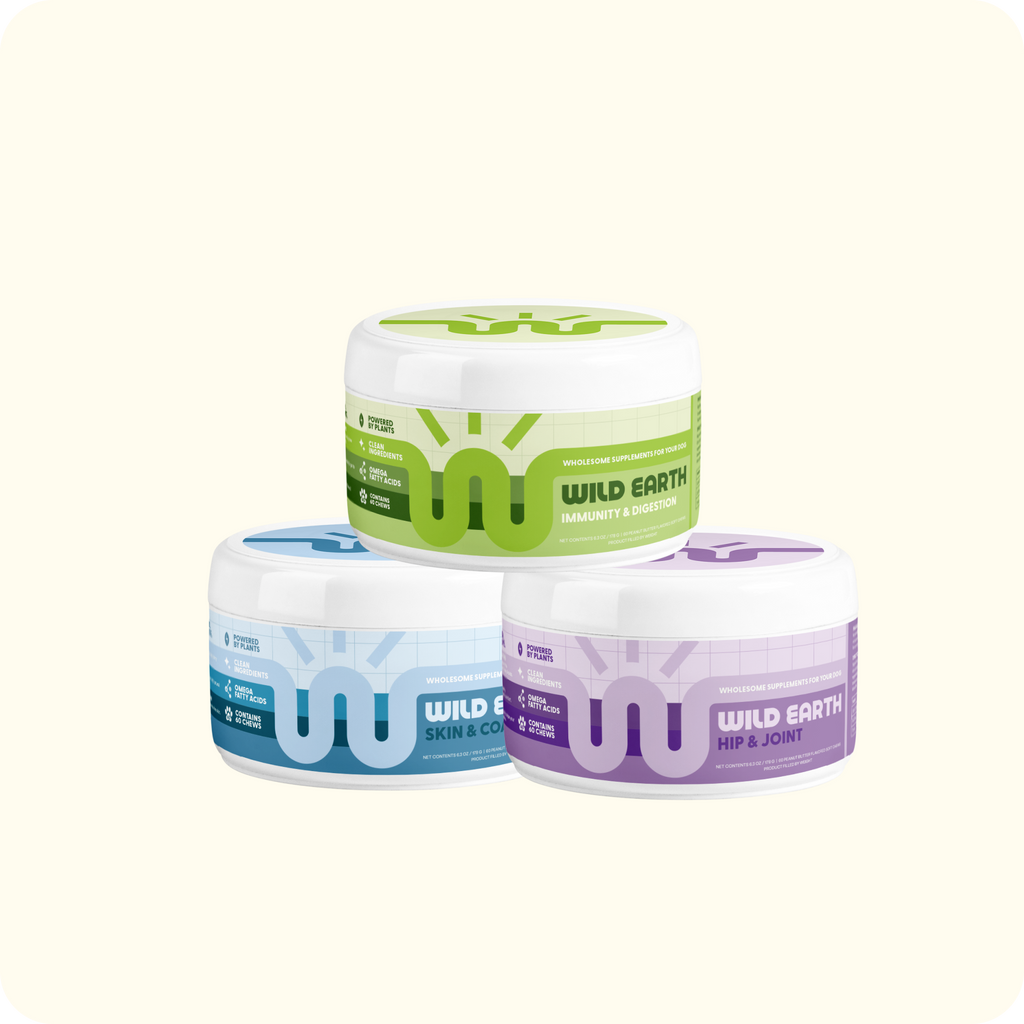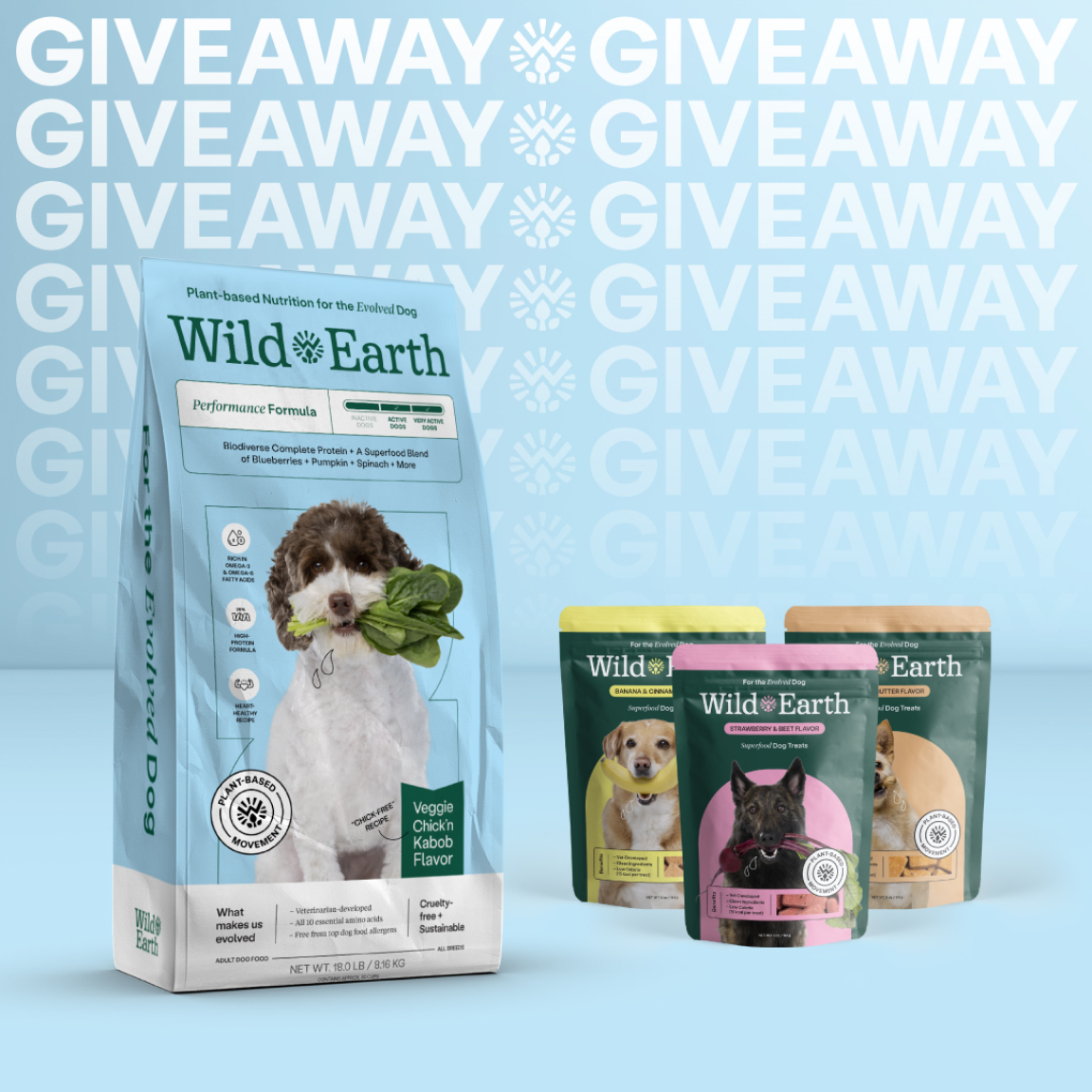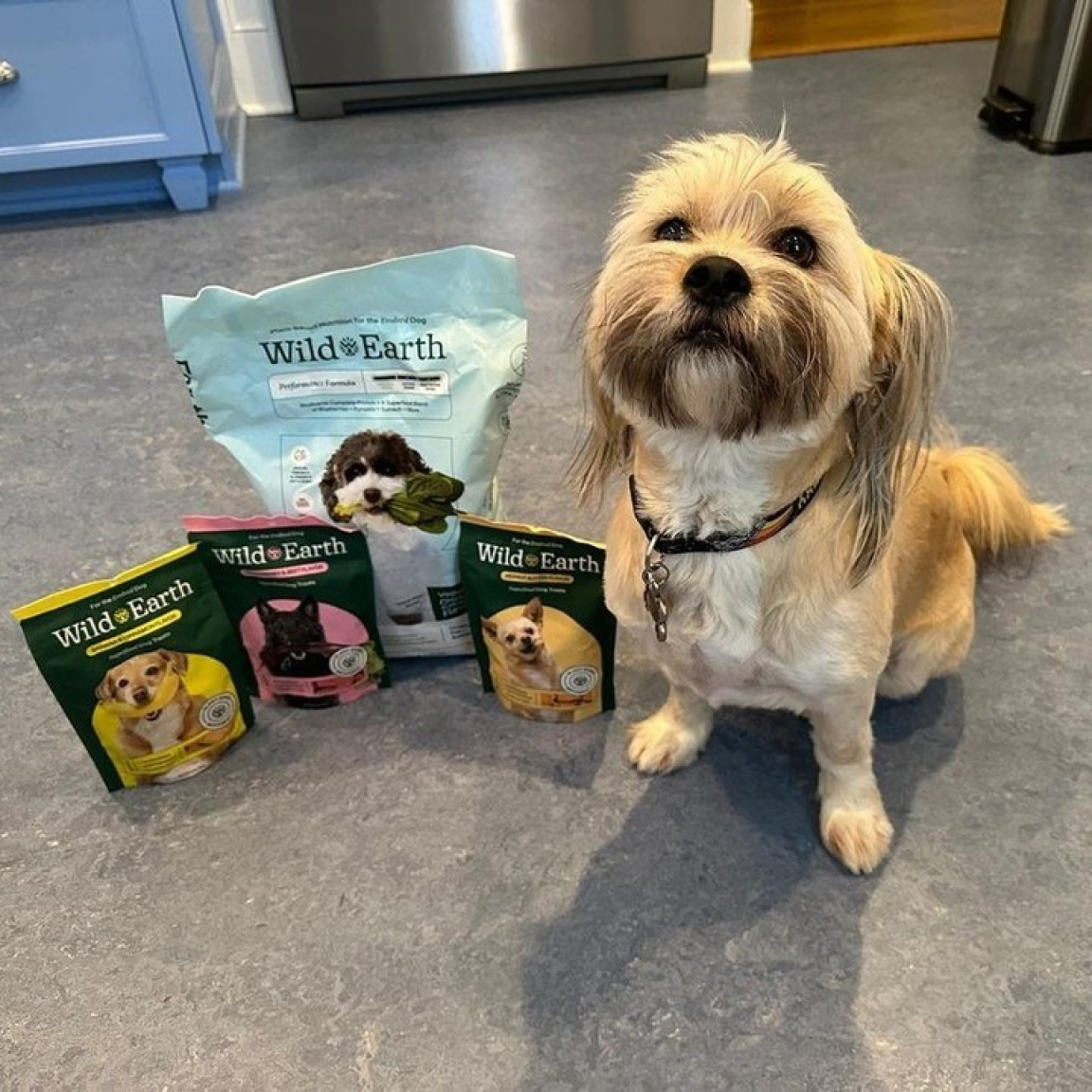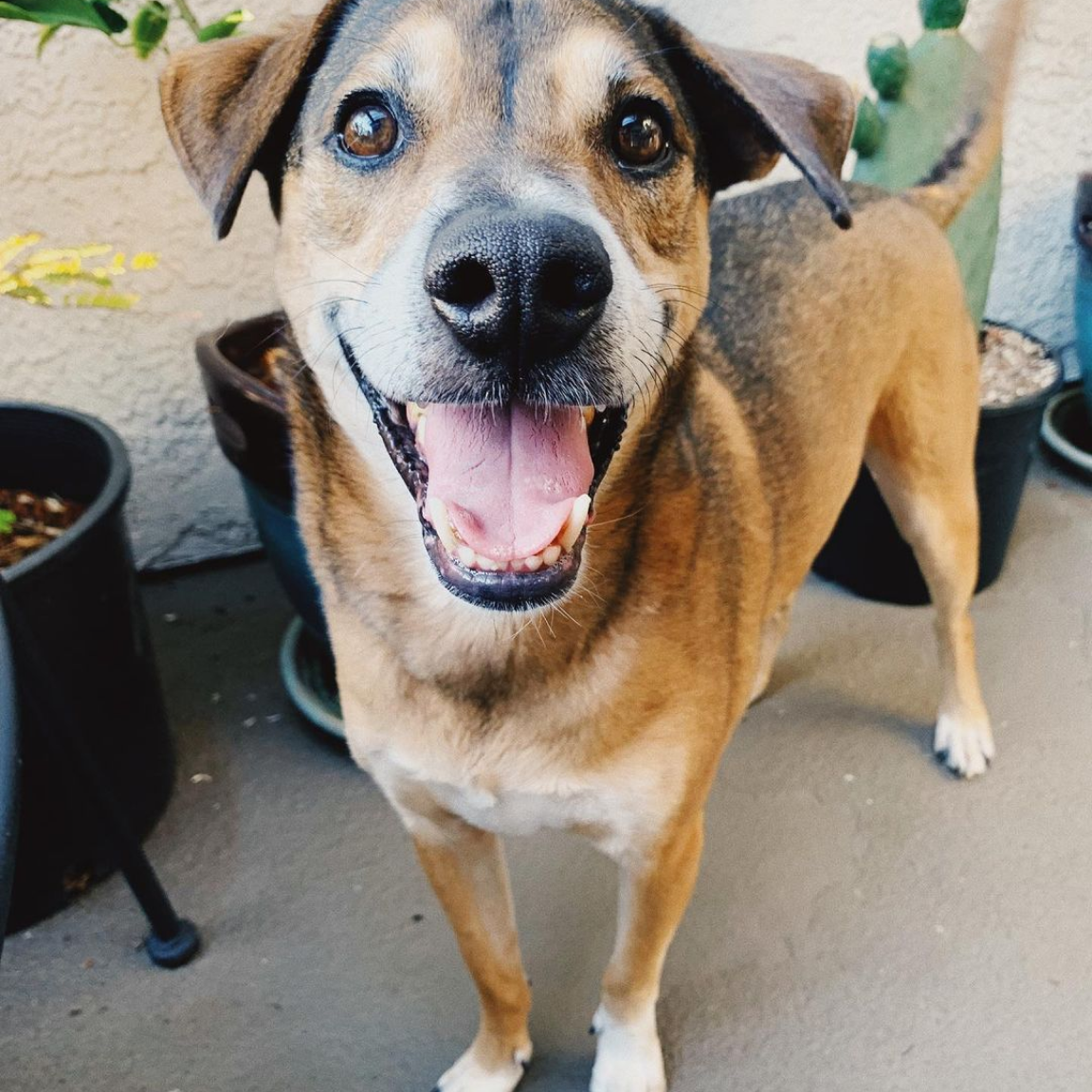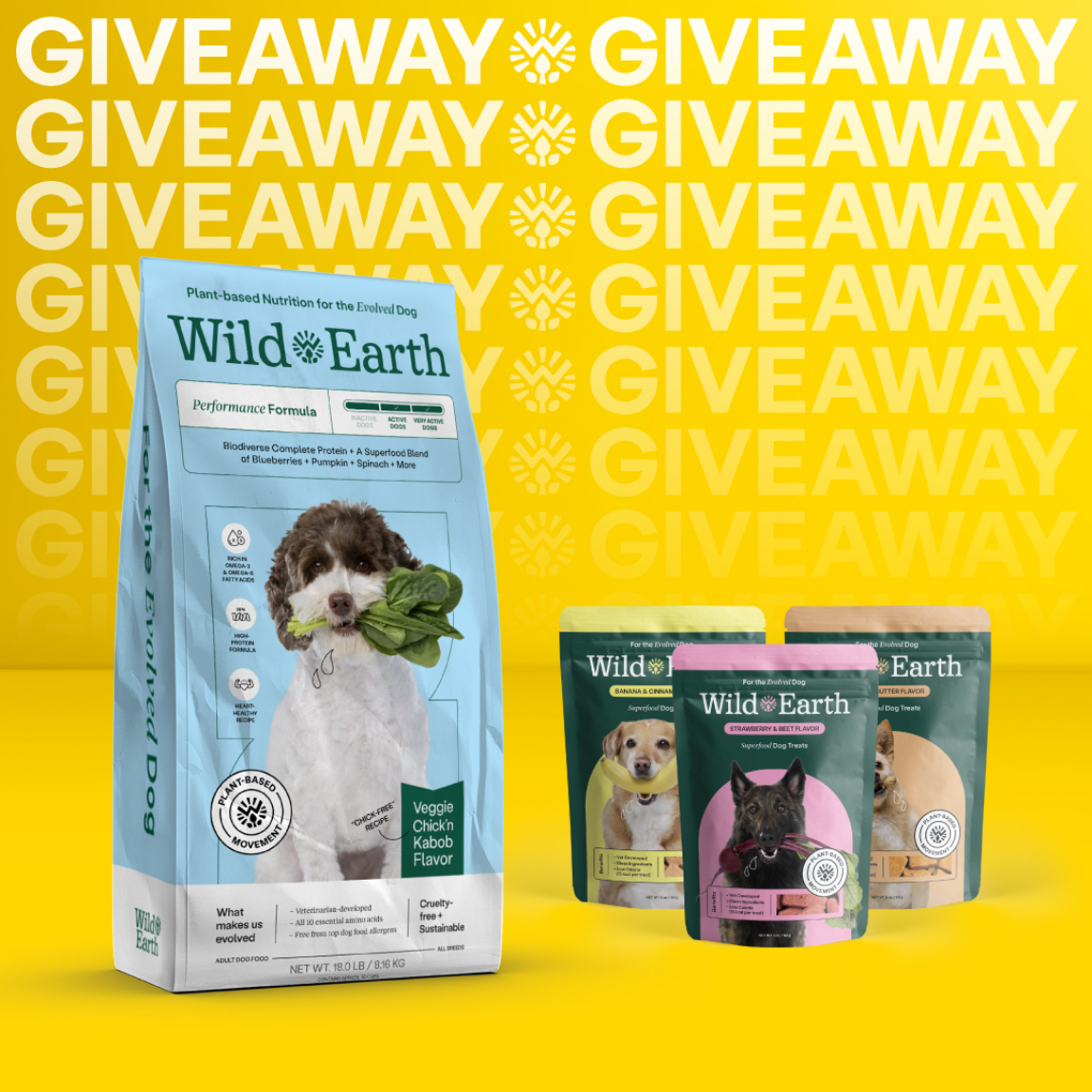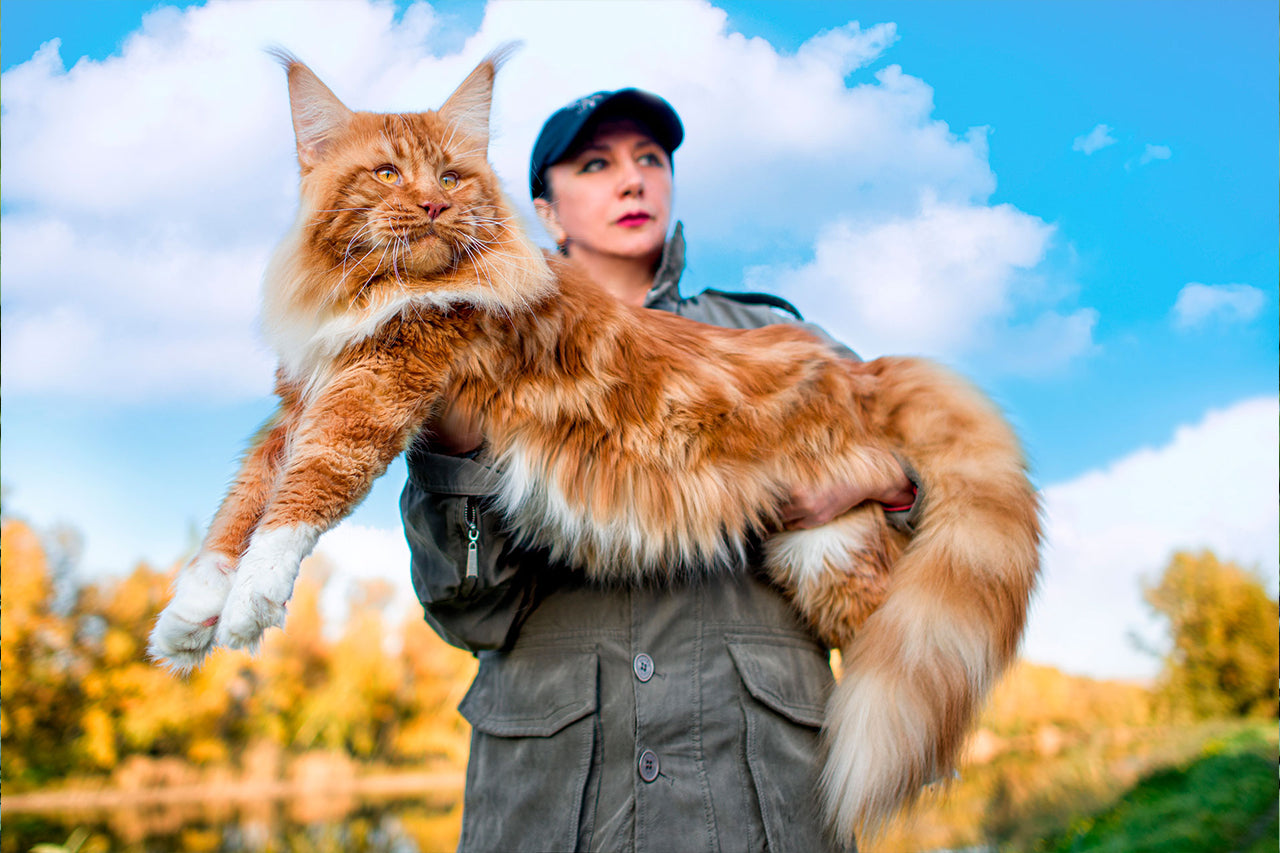
Maine Coon Cat Breed Guide
Summary:
- Maine Coons, known as "gentle giants," are beloved for their size, luxurious coats, and friendly personalities.
- They thrive on high-protein, plant-based diets and benefit from regular grooming, especially during shedding seasons.
- While generally healthy, Maine Coons can be prone to genetic conditions like hypertrophic cardiomyopathy and hip dysplasia.
- Their playful and sociable nature makes them excellent companions for families, first-time owners, and other pets.
With their luxurious coats, majestic build, and sweet personalities, Maine Coons are often called the "gentle giants" of the cat world and for good reason. These large, affectionate cats have captured the hearts of families, first-time cat owners, and seasoned pet lovers alike. They’re not only beautiful to look at but also full of personality, curiosity, and charm.
Let’s take a closer look at what makes the Maine Coon so special, from their unique appearance to their playful temperament. If you’re considering welcoming one into your home, this guide will give you everything you need to know.
Appearance: What Makes Maine Coons Stand Out
Size
Maine Coons are known for their impressive size, but don’t let that fool you. They’re as gentle as they are big. Males typically weigh between 15 to 25 pounds, while females are slightly smaller, ranging from 10 to 15 pounds. Their large, muscular frames are well-balanced and graceful, making them strong yet elegant companions.
Coat
These cats are built for the cold, and their coats prove it. A Maine Coon’s fur is long, shaggy, and water-resistant, with a silky topcoat and a dense undercoat that adds warmth. It’s surprisingly easy to manage with just two or three brushings a week to keep mats and shedding in check. Their rugged beauty is both practical and low-maintenance.
Ears
One of the most recognizable features of the Maine Coon is their tall, pointed ears with lynx-like tufts. These tufts help keep debris out and give them their alert, wild appearance. Set high and wide apart, their ears frame their face and add to their distinctive charm.
Paws
Maine Coons have large, round paws designed for snowy terrain. The tufts of fur between their toes act like natural snowshoes, offering grip and insulation. Their sturdy paws reflect their natural origins and make them surprisingly agile on different surfaces.
Tail
A Maine Coon’s tail is as functional as it is fluffy. It’s long, bushy, and thick from base to tip, often as long as their body. In colder weather, they wrap their tail around themselves like a built-in blanket. Whether in motion or at rest, it’s one of their most eye-catching features.
Colors and Patterns
These cats come in nearly every color and pattern imaginable, except for pointed patterns like those seen in Siamese cats. The most common is the classic tabby, but you’ll also find solid black, white, gray, bi-color, calico, and tortoiseshell variations. Their variety is part of what makes each Maine Coon truly one of a kind.
Eyes
Big, soulful eyes are another signature trait of the breed. Slightly oval in shape, their eyes can be green, gold, copper, or blue, especially in white or odd-eyed Maine Coons. Their gaze is curious, intelligent, and deeply expressive, adding even more character to an already charming face.
Personality: Why Maine Coons Are Loved
Temperament
Maine Coons are famously friendly and sociable. They love being near their people without being overly needy. Their calm, patient nature makes them excellent companions for families, guests, and even other pets. If you want a laid-back cat with a loving heart, they’re hard to beat.
Intelligence and Playfulness
Don’t be fooled by their mellow vibe; Maine Coons are also sharp and playful. They enjoy interactive games, puzzle toys, and even a bit of training. Many can learn tricks, routines, or how to walk on a leash. They thrive on attention and stimulation, making them ideal for homes that love to engage with their pets.
Vocalizations
Instead of the usual meow, Maine Coons are known for their unique vocal style. They often communicate through chirps, trills, and soft murmurs. While they’re not loud, they’re definitely expressive, and each cat tends to have its own distinct voice. It’s just one more way they connect with their humans on a deeper level.
Care: Keeping Your Maine Coon Healthy
Grooming
Although their long fur might look like a lot of work, Maine Coons are surprisingly low-maintenance. Brushing them two to three times a week is usually enough to keep their coat smooth and tangle-free.
During heavy shedding seasons in spring and fall, a little extra grooming helps. Cleaning their ears weekly and occasional baths are good habits to keep them fresh and healthy.
Diet
With their large size and high energy, Maine Coons do best on a protein-rich, plant-based diet that supports lean muscle and a healthy coat. Look for high-quality, plant-based cat food and avoid fillers like corn, soy, or wheat. Proper portion control is also important, as these big cats can be prone to weight gain. And of course, fresh water should always be available.
Health Concerns
Maine Coons are generally healthy, but like many breeds, they have some genetic conditions to watch out for. Hypertrophic Cardiomyopathy (HCM) and hip dysplasia are the most common. Polycystic Kidney Disease (PKD) is rarer but still possible. Regular vet checkups, early screenings, and genetic testing can go a long way in keeping them healthy and comfortable.
Indoor vs. Outdoor Living
Even though they’re tough enough for outdoor life, Maine Coons are better off indoors. Their friendly, trusting nature makes them vulnerable to theft or injury if left outside unsupervised. They do great in enriched indoor spaces with climbing trees, scratching posts, and playtime. If you want to give them a taste of the outdoors, try harness walks or a catio for safe adventures.
History: The Origins of the Maine Coon
Natural Breed
Maine Coons are believed to be one of America’s oldest natural cat breeds. Their features developed naturally over time to handle cold weather, rough terrain, and outdoor living. They likely descended from long-haired ship cats that adapted to the rugged environment of Maine, evolving into the strong, warm-hearted breed we know today.
Official State Cat
In 1985, Maine officially named the Maine Coon its state cat, a nod to both their deep roots and their lovable nature. Known for being loyal, hardworking, and gentle, Maine Coons have become a symbol of the state’s warmth and resilience.
Popularity
These cats have always had a fan base. They were stars at early American cat shows in the 1800s but briefly fell out of favor before coming back in a big way. Today, Maine Coons are one of the most popular breeds around, and with their looks and personality, it’s easy to see why.
Is a Maine Coon Right for You?
Maine Coons are a great fit for many different households. They do well with families, including kids and other pets, and they’re friendly enough for first-time cat owners. If you have the space for a large, curious feline and the time to engage with them, they’re a rewarding companion.
Final Thoughts
With their regal looks, loving temperament, and playful charm, Maine Coons are truly one of a kind. They bring warmth, fun, and companionship into any home willing to give them the care they deserve.
Looking for a way to keep your Maine Coon active and healthy? Wild Earth’s nutrient-rich cat food gives them everything they need to thrive, from a shiny coat to lasting energy and strong muscles.











